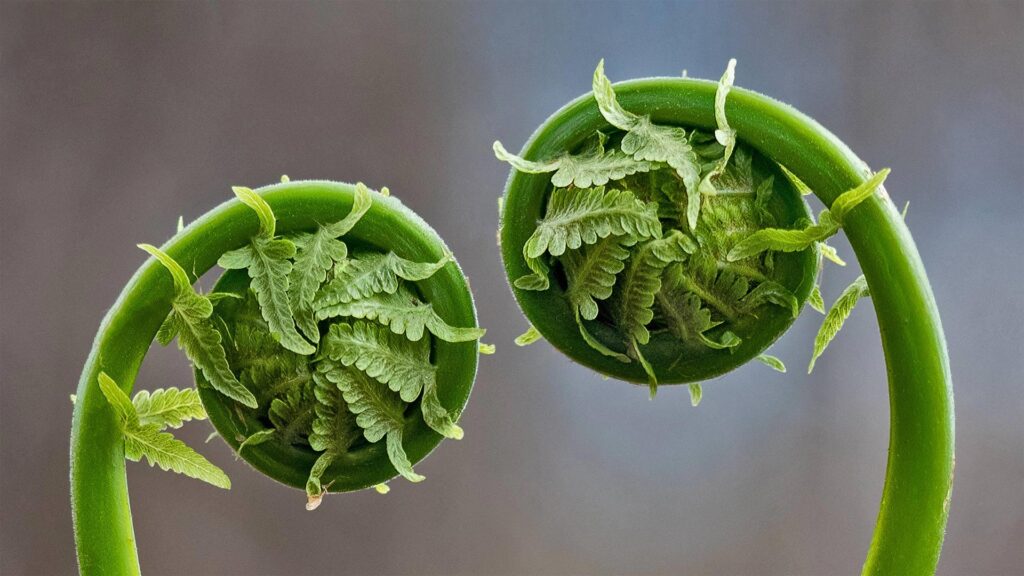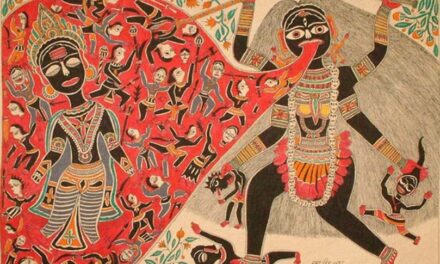“The opposite of faith is not doubt, but certainty. Certainty is missing the point entirely. Faith includes noticing the mess, the emptiness and discomfort, and letting it be there until some light returns. Faith also means reaching deeply within, for the sense one was born with, the sense, for example, to go for a walk.” ~Anne Lamott
William Perry, speaking parenthetically about the stages of cognitive development he had proposed, said “Perhaps development is all transition and ‘stages’ only resting points along the way.” Beliefs too are resting places on our journey through the unknown as we move toward truth. They are places to nourish ourselves, to solidify what we already know, and to strengthen our resolve. For many they are the final resting place, but for those of faith and courage they may be temporary sanctuary, a pause on our pilgrimage. Doubt and curiosity and experience rustle us out of those safe, protected places and move us further into the unfamiliar, into the mystery and the unexpected and unanticipated.
I have friends who are further right than the Right Brothers. I have other friends who are further left than Left-handed. These are kind people, generous, intelligent, and well-informed people. What separates them?
What they believe to be true, for one.
About politics. About religion. About sports. About raising children.
And that can be a problem because beliefs can divide.
Beliefs are way stations on the way to deeper or different truths. Look at anyone who believed in one religion, had an epiphany, and now believes just as wholeheartedly in another. (Perhaps changing political parties – which some people believe in much more strongly than they do any religion – is a better example.)

Beliefs are, at best, better and better and better (hopefully) approximations of truths. They are working propositions, subject to change and elaboration. Those with deep beliefs in God are aware that they can know only a tiny, tiny bit about the divine and that the mystery will always be far greater than any human can ever hope to know. We get but a glimpse.
Once we realize that, we are open to learning more. We can continue to deepen, question, test, assimilate, and adapt what we believe to be true. Until we must stop to rest again.
Without that questioning, testing, modifying – that deepening– beliefs rest on shallow ice. Wrestling with those beliefs, even as Jacob wrestled God, makes us stronger every step up the ladder.
Beliefs – assumptions about what is true – are useful because we can’t survive without them. I believe that cars will stop at stoplights and make choices based on that belief. But is the assumption that cars will stop at stoplights really true? Ahhh…. maybe it’s just partly true. Plenty of drivers have found otherwise. Trusting that beliefs are truth can be deceptive and dangerous, like having confidence that the Maginot line would stop Nazi Germany.
Think for a moment what those beliefs might be for us. Belief in our country, belief in our religion. Belief that health care is a right. Belief that it isn’t. Belief that climate change is human-caused, and a mortal threat. Belief that the science behind it is all wet and that the scientists have been bought off. Trust in a thought leader, and therefore belief in their beliefs.
Belief that taking a knee is an act of disloyalty. Belief that it is an act of patriotism.
Once we believe something to be true, our motivation to look more deeply or alternatively or creatively dissolves. We look then for validation of our belief rather than testing it or seeking alternative perspectives. We feel we have to protect what we believe to be true.
Beliefs divide. Unless, of course, when they unify people of common belief.
Beliefs can be insidious because the stronger they are the more likely we are to reject information that shakes that belief. And that, of course, is when beliefs unify. Folks with similar beliefs hang out together, belief-wise, claiming to be the bearers of truth, just reinforcing those placeholders for truth. Doesn’t matter left or right or up or down or anywhere all around, pick your ideology.
In an era when people are called derogatory names like “libtard,” a term I find particularly offensive (my parents both had careers in special education and we have a special needs grandchild), one sees how the power of the group can help people rationalize behavior their grandparents would have viewed with horror.

The United Methodist Church (UMC), my church, has been on the verge of breaking up for the last few years “over differing beliefs about sexuality, setting in motion what many believed would be a modern-day schism.” As reported in an an article titled “Not A Real Schism,” ” one issue, out of many that unite, has been separating people into separate groups which believe differently. Who is “right”?
Though it has turned out that the anticipated torrent of departures from the UMC has been more a ripple – so far, anyway – that doesn’t necessarily mean that “what is right” prevailed, only that this difference of opinion has not caused a cataclysmic rending of the United Methodist Church. For a more dramatic split, check out the schism between the Eastern Orthodox and Roman Catholic churches caused in part by adding one phrase, “and from the Son” – filioque, in Latin – to the Nicene Creed.)
In both cases, the UMC and the early Christian church, the beliefs which were flash points – different views of the churches’ views and practices related to sexuality (such as whether ordained clergy would be able to perform gay marriages), or to add a short phrase to the Nicene Creed – actually represented much deeper differences in belief systems and practices. For the Catholic church, the division between Eastern Orthodox and Roman Catholic continues over a thousand years later; for the UMC only time will tell.
These examples, obviously, are just two of the too-many-to-count beliefs that have separated people over the ages, but perhaps if we were more able to consider beliefs as temporary, and not final, resting places we would be able to continually deepen our understanding and our belief systems over our lifetimes.
Faith, as Anne Lamott says, is a messy business. But it’s the business of seeking the light, not of proving what’s right.
Intelligence and knowledge do not protect us from the hubris of certainty, far from it. Only the doubt that comes from humility can save us. Only the faith to delve deeper or differently can move us a step further, then a step further. Perhaps a step back. Then a step further.
The humble spirit recognizes that no human has the capacity to know everything, that others are likely to know a whole bunch that we do not, and that none of us can know anything with complete certainty. Not even our own experiences. Don’t believe me? Take an evening and watch The Matrix again.
As theologian Ronald Rolheiser says so well in Against An Infinite Horizon,
“To have faith is to see everything against an infinite horizon. That is a useful definition. Faith is not a question of basking in the certainty that there is a God and that God is taking care of us. Many of us are never granted this kind of assurance. Certitude is not the real substance of faith. Faith is a way of seeing things. It is meant to change our eyesight, to take the reality of our lives and all that is in them—everyday work, relationships, family, love, sex, hurt, longing, fidelity, failure, sin, suffering, and death—and set these against the horizon of the eternal and the infinite. What faith does is give us a double vision: When we have the eyes of faith we see a certain divine glow shimmering within the ordinary, just as we see all that is ordinary against a horizon of the eternal. Plato called this ‘contemplating the divine,’ traditional religion calls it ‘the finger of God in our lives,’ this book will call it ‘seeing against the infinite horizon.’”








This is an important and vexed topic today. For me, the conflicts fall away when I realize that faith is trust, not trust in a mental belief or theoretical possibility, but trust in a person. I don’t know or understand everything that the Lord in whom I trust does or will do, there is plenty of room for uncertainty, but I have faith that his will is ultimately for my good and the good of all, and that through trust in him my knowledge will grow. That is the ground of my own faith.
How do I know the person in whom I’m placing my trust is actually worthy of that trust? “Love, joy, peace, patience, kindness, goodness, gentleness, and self-control” are the fruits of that relationship. It does not lead me to judge or exile other people, rather the opposite. It has led me to be able to live with or to at least have compassion for people I had thought I could not tolerate at all. Anything else is a false guide, i would venture.